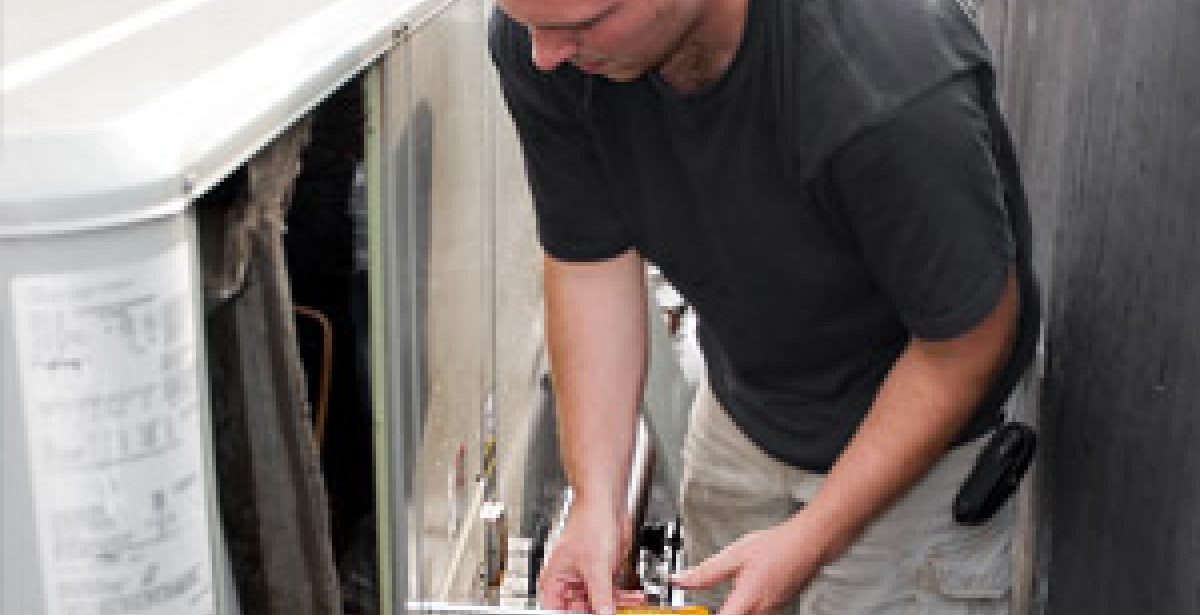
A Top Job you can get with the right career training—HVACR
Do you remember how cold and snowy it was last winter? Philadelphia experienced its 3rd snowiest winter on record, and saw below average temperatures. You definitely don't want to lose your heat during a harsh Pennsylvania winter like that but if you do, a heating, ventillation, air conditioning and refrigeration (HVACR) technician could save the day!
HVACR mechanics and installers know just what to do to get the heat back on in the middle of those cold winter nights. They work on heating, cooling and refrigeration systems involved in climate control and air quality in homes like yours, and also in big commercial and industrial buildings. Commercial and industrial HVACR workers perform the same sort of tasks as residential technicians, but on a much bigger scale. If you've ever attended a game or concert at an indoor arena, you probably take climate control for granted, but somebody's in charge of making sure everyone is comfortable even in the heat of an intense game.
Those technicians have been well-trained. Good HVACR programs start by teaching you some fundamentals of physical and electrical science. They instruct you on heating and refrigeration systems, introducing you to the blueprints and schematics you'll find out on the job. They teach you the basics of air filtration and humidification and all about installation, maintenance and repair. Then, they give you plenty of opportunity to apply what you've learned in a simulated work environment. Industry experienced instructors should teach you in small classes, offering you their guidance and helping you acquire the skills you need to succeed in the HVACR industry.
If you like working with your hands and don't want to sit behind a desk all day, maybe you'd like a HVACR career. As the economy improves and construction continues to see an upward swing, the need for the specialized services of HVACR-trained professionals should also grow. Jobs for HVACR mechanics and installers are expected to grow faster than average through 2022, and according to the Pennsylvania Department of Labor and Industry, entry level pay for someone in the profession was nearly $35,000 based on September 2014 job postings. Did you know that you could train to become a heating, ventillation, air conditioning and refrigeration technician in as little as 12 months?
If you'd like to learn more about a HVACR career, check out the Career HVACR program at YTI Career Institute. Or research all the programs offered at our Lancaster and York campuses.
References:
http://www.weatherworksinc.com/winter-statistics-2013-2014
http://www.bls.gov/ooh/installation-maintenance-and-repair/heating-air-conditioning-and-refrigeration-mechanics-and-installers.htm
https://paworkstats.geosolinc.com/vosnet/lmi/occ/occsummary.aspx


